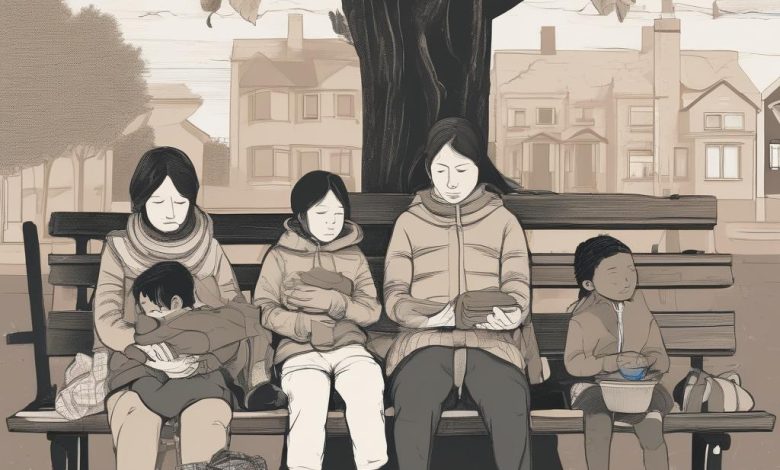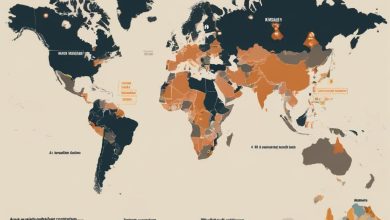Migration’s Psychological Impact on People & Families

Migration’s Psychological Impact on People & Families
Moving to a new place, whether by choice or not, deeply affects people’s mental health. It changes how individuals and families grow and interact. They face many emotional challenges as they adjust to new surroundings.
Starting anew can make people feel lost and alone. They miss their old homes, friends, and ways of life. This feeling of disconnection can lead to stress and mental health issues.
Trying to fit into a new culture can be hard. It can cause feelings of loneliness, worry, and sadness. Finding a job, a place to live, and basic services can make things even tougher for migrants.
For families, moving is especially tough. They must adjust to a new life while keeping their family ties strong. Kids might struggle with new schools, friends, and languages. This can affect how they think, feel, and interact with others.
Key Takeaways
- Moving can cause emotional stress and practical problems that affect people and families.
- Adapting to a new culture can make migrants feel isolated, anxious, and depressed.
- Children often find it hard to adjust to new places and ways of life.
- It’s important to support the mental health of migrants for their integration and well-being.
- Keeping family ties and cultural identity can help ease the mental challenges of moving.
Understanding the Psychological Challenges of Migration
Moving to a new place can deeply affect people and families. Leaving familiar surroundings for a new culture brings many psychological challenges. These challenges can really impact how well someone feels.
Emotional Upheaval and Stress
Leaving home can make people feel many emotions, like excitement and sadness. Migrants often feel stressed as they get used to a new place, language, and ways of life. The emotional impact of migration can be especially strong for those who had to leave due to conflict, disasters, or economic issues.
Acculturation and Identity Struggles
Acculturation means blending old and new cultures. This can be hard for people. They might feel lost trying to keep their old culture while fitting in here. This struggle can cause stress as they try to keep their identity while living in a new way.
Changes in family life can also be tough. Family members may adjust at different speeds, leading to conflicts. This adds to the stress migrants feel.
“The psychological adjustments required during migration can be both transformative and deeply unsettling, as individuals confront the realities of redefining their identity and sense of belonging in a new cultural context.”
It’s important to help people understand the emotional side of moving. By recognizing these challenges, we can support migrants more effectively. This helps them in their journey to integrate and grow.
The Psychological Impact of Migration on Individuals and Families
Moving to a new place can deeply affect both individuals and their families. The stress of adjusting to a new culture and life can hurt mental health. Migrant families often struggle as younger and older members adapt at different speeds, causing tension.
The mental health of migrant families is a big worry. The move can make mental health issues worse or create new ones. Feeling alone, sad, and missing their old life can lead to depression, anxiety, and PTSD.
But, migrant families are also known for their strength and ability to adapt. They often find ways to cope, like keeping family ties strong, holding onto their culture, and finding support in their new area. Groups that offer mental health help and support can really help migrant families deal with their challenges and stay well.
FAQ
What are the emotional challenges that migrants often face?
Migrants often feel a lot of emotional stress when they leave their homes and adjust to a new culture. This change can make them feel anxious, homesick, and unsure of who they are. They have to deal with the hard parts of fitting into a new society.
How does the migration process impact family dynamics?
Moving can really change how families interact with each other. It can cause stress and tension between generations. Families may find it hard to keep their cultural traditions while living in a new place. This can make relationships harder and affect everyone’s mental health. It’s important for families to find ways to cope and support each other through these changes.
What are the identity struggles that migrants may face?
Migrants often feel stressed as they try to keep their own culture while fitting into a new one. This can make them question who they are. They might feel caught between their old and new cultures, not really belonging to either. Finding a way to deal with this identity crisis is a big challenge for many migrants.
How can support systems help migrants cope with the psychological impact of migration?
Having strong support, both from other migrants and mental health services, helps a lot. These systems give people a sense of community and help share ways to cope. They also offer professional help for the emotional and mental health needs of migrants.
What are some of the long-term psychological effects of migration on individuals and families?
Moving can have lasting effects like ongoing stress, more anxiety and depression, and changes in family life. Migrants may still miss their old life, struggle with making a new one, and face tensions with their families. To deal with these effects, we need a full approach that looks at each person and family’s unique situation.





